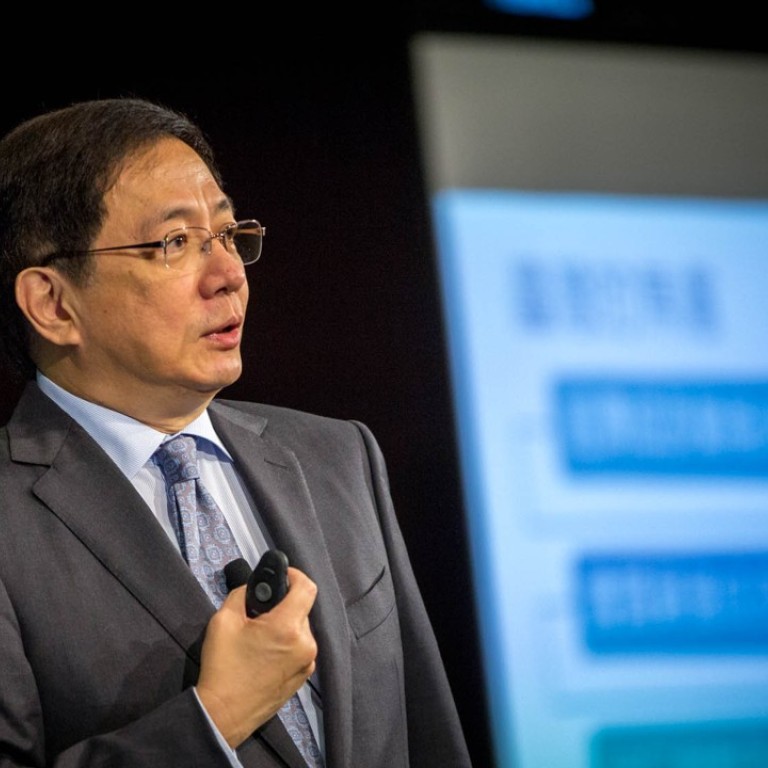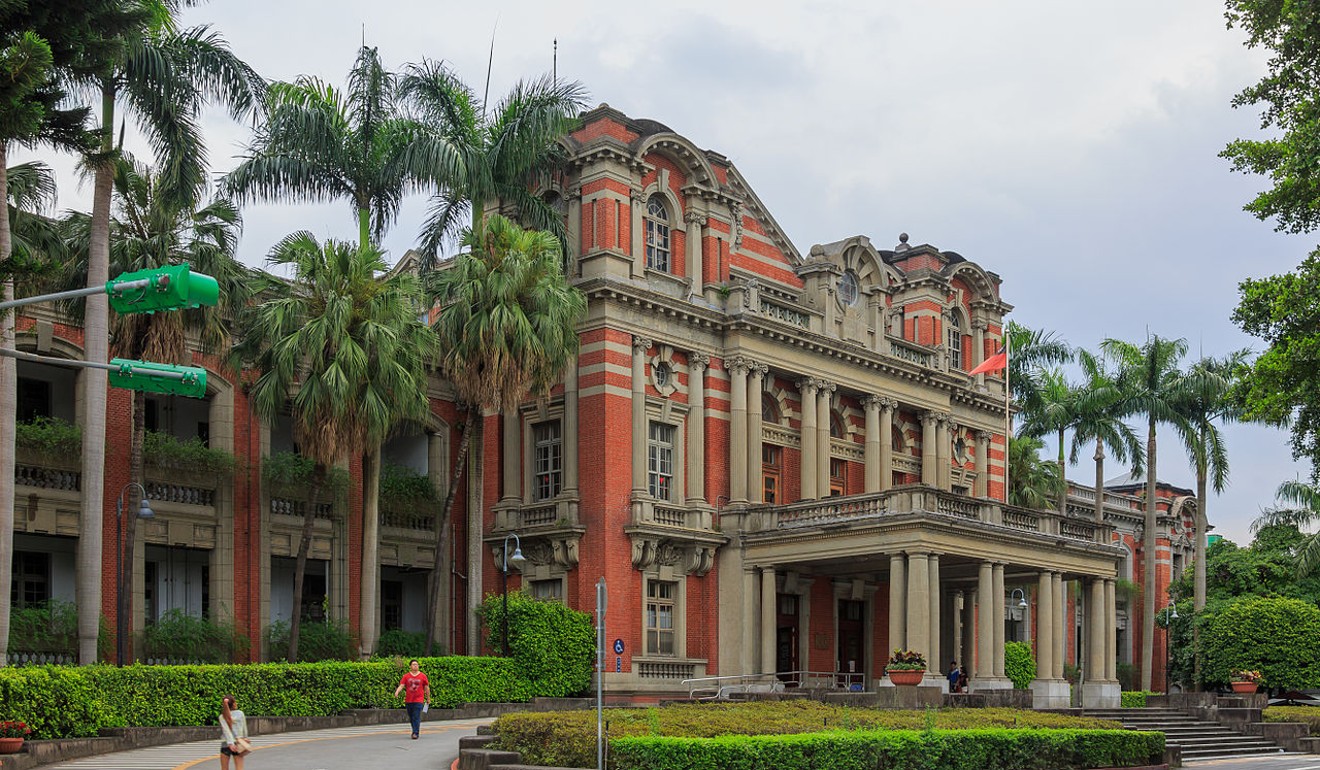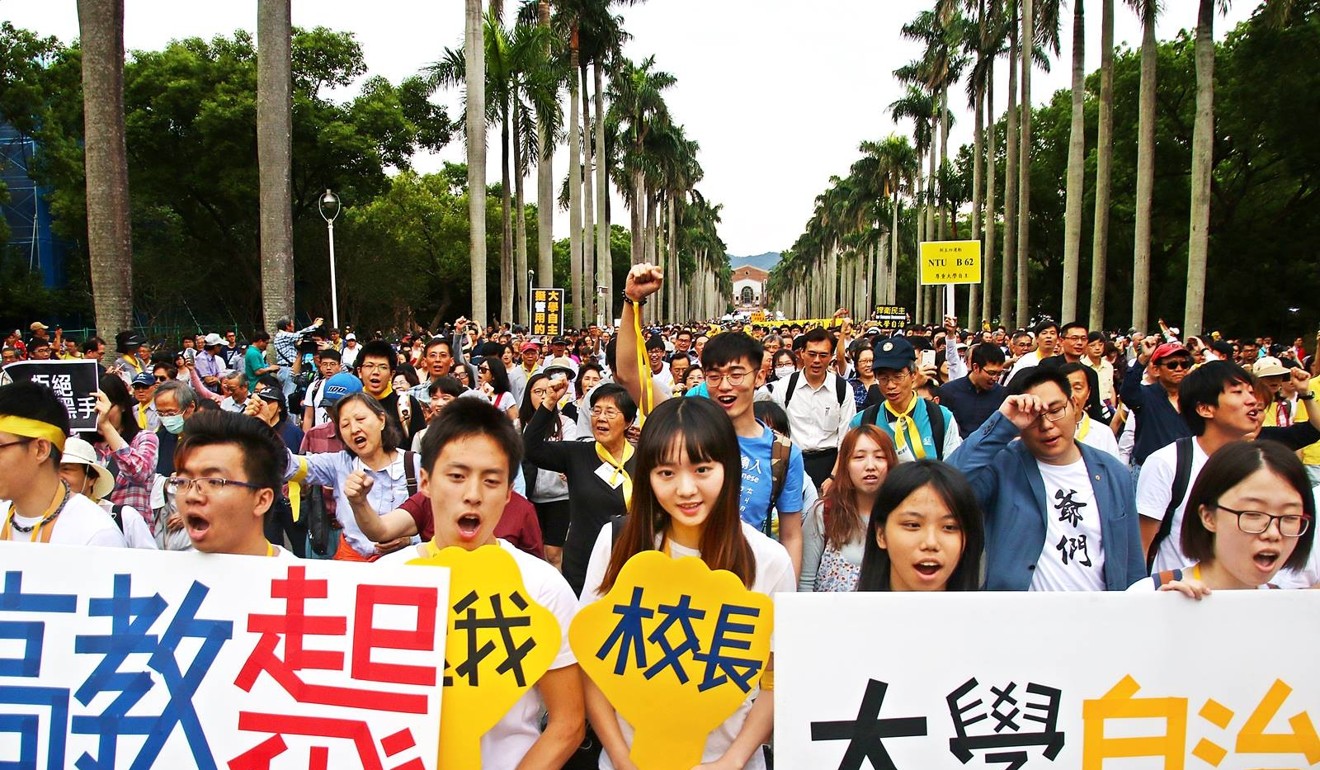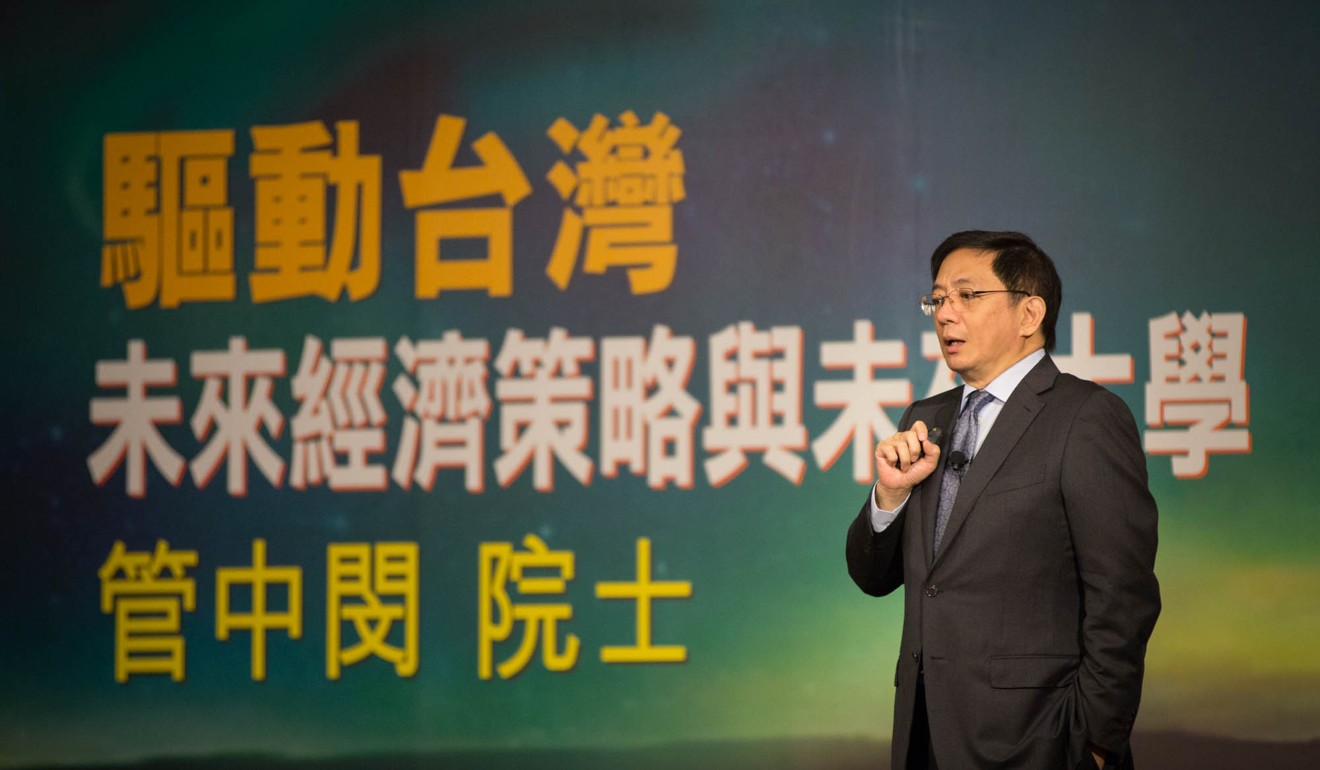
Taiwan must halt brain drain being encouraged by Beijing, says president-elect of top university
Authorities ‘need to put aside political differences’ and do more to retain talent, given the island’s low salaries and the mainland’s incentives for professionals
Authorities in Taiwan should step up efforts to counter an academic “brain drain” from the island amid escalating political and economic pressure from Beijing, according to the president-elect of Taiwan’s most prestigious university.
Speaking in Hong Kong on Tuesday, Kuan Chung-ming said a set of 31 measures introduced by Beijing in March to offer the Taiwanese “equal status” as mainland residents would push more professionals to leave the island to work on the other side of the strait.
Beijing regards Taiwan as a renegade province that broke away from the mainland when the civil war ended in 1949.

“Indeed, principals in Hong Kong universities have started poaching professors from Taiwan’s universities in recent years, just because of the enlarging salary gap between the two places,” said Kuan, whose confirmation as president of National Taiwan University (NTU) has controversially been delayed.
Professors at Taiwanese universities earn only about one-third of what their colleagues in Hong Kong and Singapore make.
Meanwhile, a third of Taiwan’s professors were expected to reach retirement age in the next five to 10 years, said Kuan, adding that the situation was even worse at NTU.
To address the situation, the president-elect said shortly after his election in January that he planned to raise about NT$500 million to NT$700 million (US$16 million to $23 million) for the university, an amount he said was enough to make up for the salary gap based on Taiwan’s living standards.
“My economic and management knowledge told me that retaining talent is easier and cheaper than poaching new people because you might need to spend two or three times what you would spend on salary to headhunt replacements for lost talented employees,” Kuan said at a forum about Taiwan’s future economic strategies.
The economics professor has been caught up in controversy since he was chosen by NTU’s presidential election committee.

Taiwan’s Ministry of Education blocked his appointment in April amid allegations of personal conflicts of interest related to the election, and concerns about his ties to mainland academics.
The disqualification sparked a massive demonstration by NTU teachers and students on the 99th anniversary of the anti-imperialist and pro-democracy May Fourth Movement. Protesters accused the ruling Democratic Progressive Party (DPP) of violating principles of university autonomy in Taiwan.
The protests have escalated and led to political confrontations between the Beijing-friendly Kuomintang and the independence-leaning DPP, and led to former education minister Wu Maw-kuen’s resignation in May.
The ministry has chosen an acting president for NTU, but the lack of a new selection process has prompted 14 Taiwanese universities to form an alliance with a stated goal of defending Taiwan’s academic freedom.
Kuan said he was still awaiting confirmation of his appointment, or a new election.
“I am so helpless,” he told the forum. “Until now, the Ministry of Education hasn’t given me any punishment notice, even a call [to explain why I am disqualified]. It seems like I am just an onlooker.”
A former minister of Taiwan’s development council from 2012 to 2015 under former president Ma Ying-jeou, Kuan stressed that low salaries were a key problem dragging down Taiwan’s economic growth, pushing local industry to hire cheaper labour from developing countries.

He said that of the 700,000 foreign workers in Taiwan, 60.2 per cent were blue-collar workers, 35.4 were domestic helpers and only 4.4 per cent were professionals.
“The problem is, among the 4.4 per cent of professionals, half of them are foreign language teachers,” he said.
“The most urgent strategy for Taiwan authorities is to put aside their political differences and come up with effective measures to attract more talent from overseas, especial those Taiwanese doctoral students now studying overseas.”
Since the outbreak of the US-China trade war, attracting talent from Taiwan, especially veterans from the island’s top-tier chip makers, has become a primary effort by mainland authorities. They want to move the industry into overdrive and reduce the dependence on overseas firms for the prized chips that power everything from smartphones to military satellites.
Kuan suggested that Taipei pay for efforts to keep the island’s top-tier industries such as semiconductors, and help those enterprises upgrade their capacity in research and development sectors.

